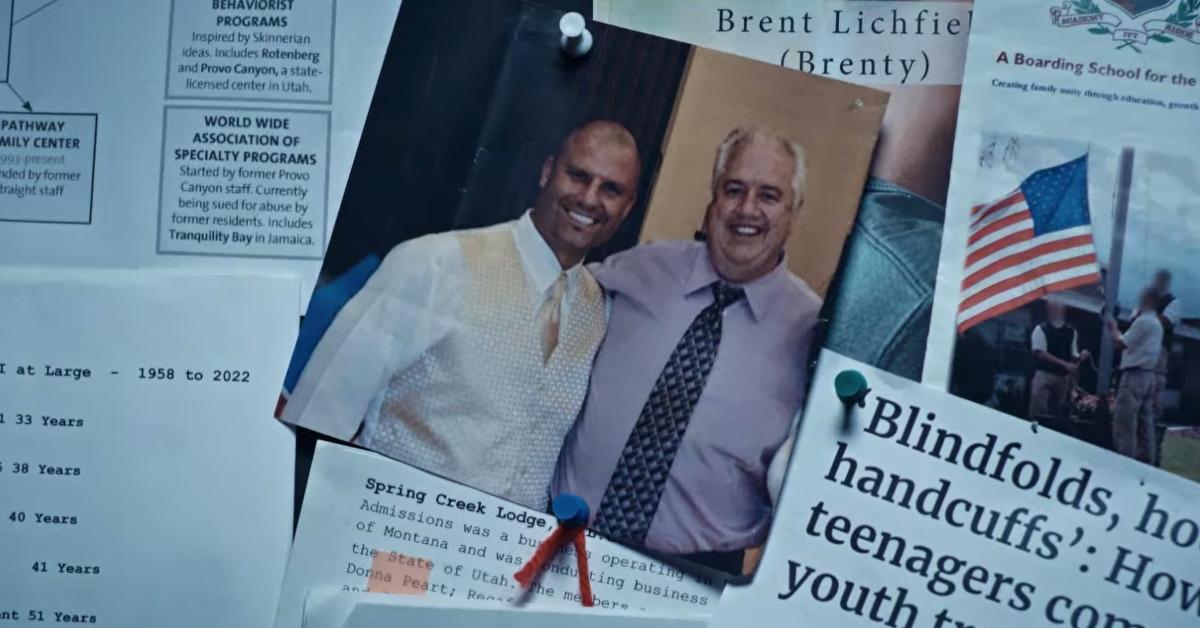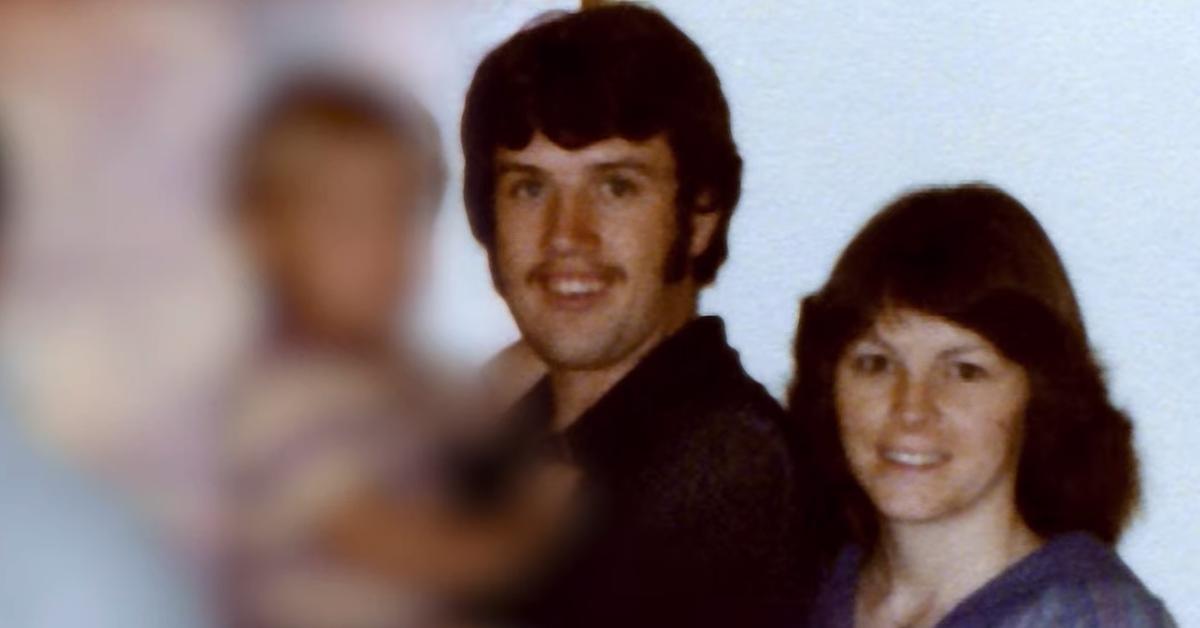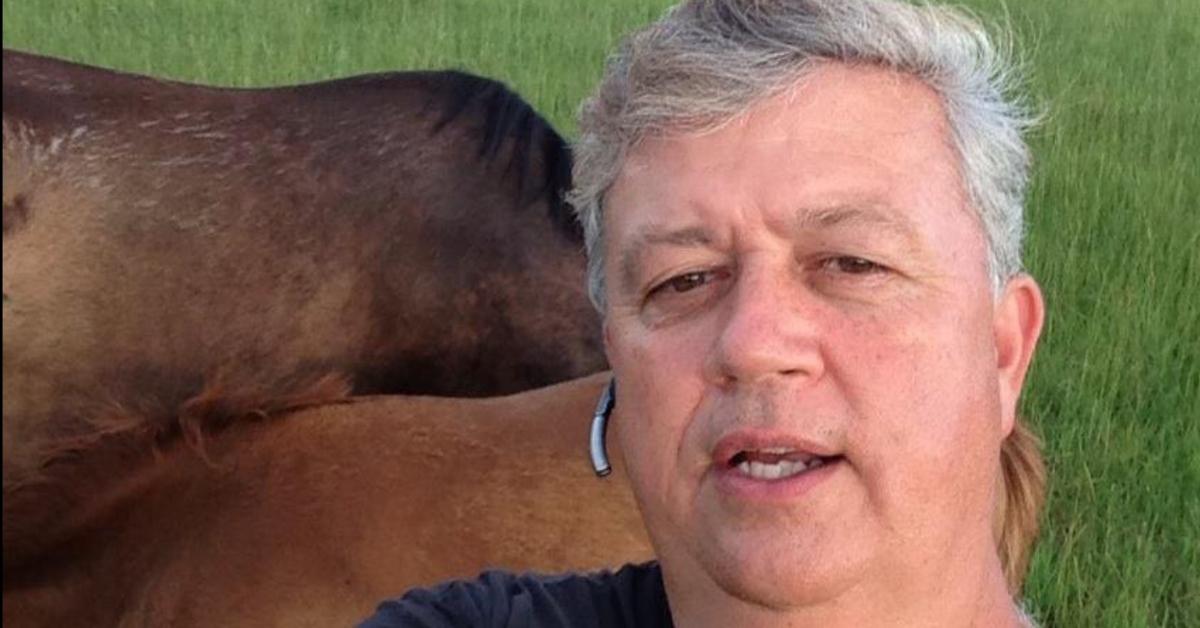Where Is Robert Lichfield Now? He Created Behavior Modification Programs for Teens in the '90s
Robert Lichfield believed that the troubled teen boarding schools were essentially a gift from God to combat evil.
Published March 7 2024, 4:27 p.m. ET

Robert Lichfield (L)
Believe it or not, the troubled teen industry actually began with troubled adults. In 1958, a former member of Alcoholics Anonymous by the name of Charles Dederich Sr. founded an organization called Synanon. Loosely based on the 12-step teachings of the sober community, it used tactics like "isolation, humiliation, hard labor, and sleep deprivation" to break heroin addicts from their addiction, per Mother Jones.
Synanon used violence as currency and by the early 1980s, the group was all but gone. However, like Hercules and the Hydra, removing the head of Synanon caused more to spring up in its place. What grew from this was institutions aimed at teenagers, and they relied upon behavior modification practices. In 1998, the World Wide Association of Specialty Programs and Schools (WWASP) was founded by Robert Lichfield who contributed mightily to the troubled teen industry. Where is he now? Here's what we know.
Where is Robert Lichfield now? He is a bit of a recluse.
In March 2024, Netflix released a documentary about the troubled teen industry that mostly focused on one school in particular. The Academy at Ivy Ridge was located in Ogdensburg, N.Y., and was under the WWASP umbrella. The documentary's director, Katherine Kluber, was a prisoner at Ivy Ridge for 15 months in the mid-2000s. At one point in the series, she visited Lichfield's sprawling estate in Utah where she was told by his nephew that Lichfield was never there. In fact, his nephew wasn't sure where his uncle was.

Robert Lichfield (R)
Despite avoiding the media and public scrutiny, Lichfield's name still pops up from time to time. The Salt Lake Tribune reported in June 2023 that some residents of Hurricane, Utah were trying to put a stop to the creation of a recreational building donated by the WWASP founder. Hurricane Mayor Nanette Billings reached out to Lichfield in 2021 after she was elected, and begged him to donate a building he wasn't using. He agreed on the condition that she take the building as-is.
Billings also offered to name the building after Lichfield despite the protests from residents, a lot of whom were former students of WWASP facilities. During a press conference, Billings gave a lukewarm apology to those who had been forced to attend one of the troubled teen boarding schools by saying she didn't know any of the people who hurt them and by the way, forgiveness is important. Lichfield wasn't present for this as he was reportedly out of the country at the time.
Robert Lichfield credited God for his success.
The Los Angeles Times spoke with Lichfield in June 2003 about what made him so successful in what the article refers as "tough-love" academies. He was 49 at the time and shared six children with his wife. There were also 11 schools operating in the WWASP system, which was but one part of his portfolio that also included "everything from restaurants to radio stations."

Young Robert Lichfield
"We’re here getting kids off drugs and other evils," he told the outlet. "Do I believe, being a God-believing person, that the adversary to all good is going to sit back and let that happen without a major unleashing of dark forces? No, I don’t."
Lichfield claimed to only be an adviser and investor in the schools, but his so-called adversaries said he was managing them pretty closely. Although many believe this is the case, what Lichfield actually did was keep his businesses in the family.
At one point Narvin Lichfield, Robert Lichfield's brother, owned two of the WWASP schools.
According to the Los Angeles Times piece, Lichfield's brother Narvin Lichfield owned "Carolina Springs Academy near Abbeville, S.C., and the Academy at Dundee Ranch in Costa Rica." In the Netflix documentary, he is portrayed as a toxic and scheming abuser who only cared about making money regardless of who he hurt along the way.
On March 6, 2024, the day after the Netflix documentary was released, Narvin took to Facebook where he wrote a lengthy post condemning the documentary. "I was falsely accused in 2003 over 20 years ago by two male students at my school in Costa Rica by the name of Rancho Dundee," he wrote. It's unclear what the accusations were, as Narvin is not much of a linear writer. He references alleged abuse and claims he was found not guilty four years later when the case went to court.

Narvin Lichfield
He then goes on to say that nothing bad happened at the schools he owned but he can't speak for Ivy Ridge as Narvin had never been there. In the documentary, Narvin's son Nathan Lichfield said he witnessed abuse at the schools his father ran but Narvin quickly tries to discredit his son by claiming he has mental health issues. This is a classic tactic used by abusers known as DARVO (deny, attack, and reverse victim & offender). He denied any wrongdoing, attacked his own son, then tried to turn himself into the victim.
Narvin ended the confusing Facebook post by claiming the situation at the schools was complicated. "We loved the kids and did everything in our power to make sure they had an appropriate experience," said Narvin. An appropriate experience is certainly an odd choice of words.